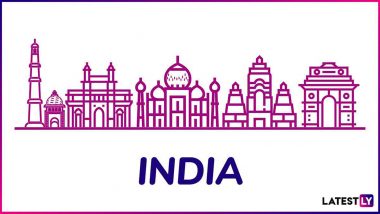New Delhi, Jan 31 (PTI) As many as 96 cities across the country have witnessed an improvement in the air quality with the government taking a host of measures, including steps to curtail vehicular emissions, Economic Survey 2021-22 said on Monday.
The government has approved Phase-II of FAME scheme with an outlay of Rs 10,000 crore for a period of five years commencing from April 1, 2019 as part of its efforts to promote electric vehicle adoption and reduce air pollution, the Survey noted.
Also Read | Tamil Nadu Urban Local Body Polls 2022: BJP to Go Solo in Upcoming Polls, Says K Annamalai.
Out of total budgetary support, about 86 per cent of fund has been allocated for demand incentive so as to create demand for electric vehicles (EVs) in the country, it added.
"This phase aims to generate demand by way of supporting 7,090 e-buses, 5 lakh e-3 wheelers, 55,000 e-4 wheeler passenger cars (including strong hybrid) and 10 lakh e-2 wheelers," the Economic Survey stated.
Also Read | Vivo T1 5G Teased on Flipkart; India Launch on February 9, 2022.
Permit requirement for electric vehicles has been removed, it added.
"As a result of these initiatives, 96 cities showed a decreasing trend of PM10 concentration in 2020-21 as compared to 2019-20. The number of cities within the prescribed National Ambient Air Quality Standard (PM10 less than 60 µg/m3) also increased from 18 in 2019-20 to 27 in 2020-21," it noted.
However, air pollution remains a major concern, with 36 cities showing an increasing trend in PM10 concentration in 2020-2021 as compared to 2019-2020, it added.
Listing other measures taken to curtail vehicular emissions, the Survey noted that the country has leapfrogged from BS-IV to BS-VI norms for fuel and vehicles since April 2020. Besides, metro rail networks for public transport have been enhanced and more cities covered, it added.
Cleaner/alternate fuels like CNG, LPG and ethanol blending in petrol have been introduced, the Economic Survey stated.
The government has also brought in stringent emission norms for coal-based thermal power plants, it stated.
Besides, there is ban on use of imported pet coke in the country since July 2018, with exception for permitted processes, it said.
Online continuous emission monitoring devices have been installed in highly polluting industries and brick kilns have been shifted to zig-zag technology to reduce pollution, the Survey noted.
The government has also also notified six waste management rules covering solid waste, plastic waste, e-waste, bio-medical waste, construction and demolition, waste and hazardous waste, it said.
Besides, extended producer responsibility for plastic and e-waste management has been introduced, it added.
Also, burning of biomass/garbage has been banned, the Survey noted.
(This is an unedited and auto-generated story from Syndicated News feed, LatestLY Staff may not have modified or edited the content body)













 Quickly
Quickly

















